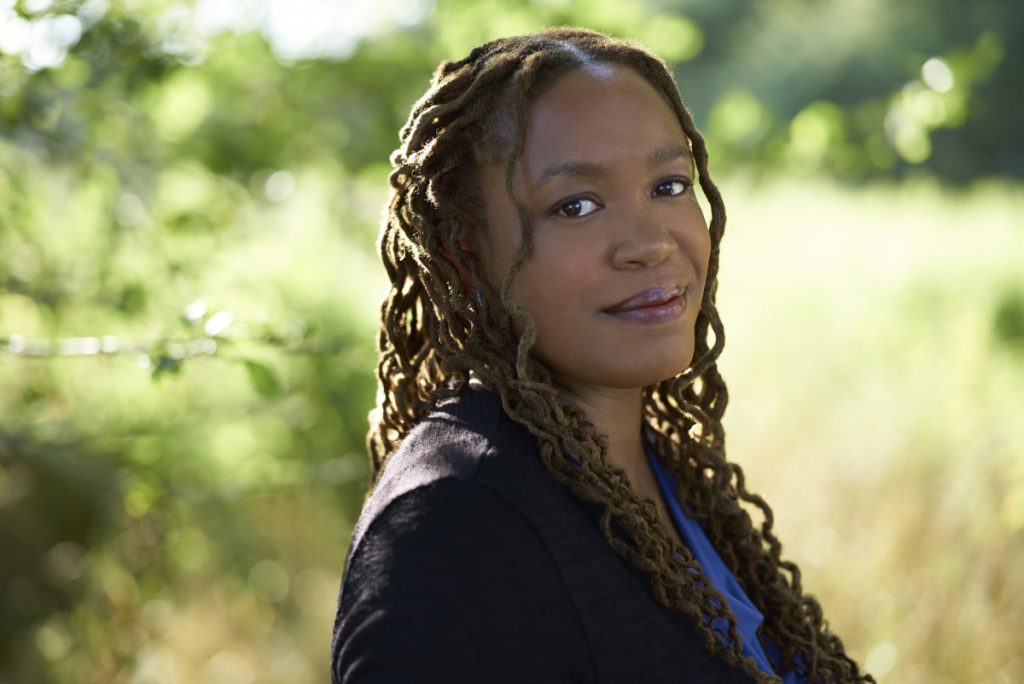MAX ZAMBRANO – STAFF WRITER

Born on the south side of Chicago and educated in American studies at Yale University, Heather McGhee was in her early 20s when she joined Demos, a think tank which pursues a just, inclusive and multiracial democracy, according to its website.
When she joined, in 2002, Demos was just a startup. By the time McGhee was 33, in 2014, she was its president. Then, a few years later, she stepped down. She wanted to do some traveling.
“I set out on a journey over the course of three years across the country from California to Mississippi to Maine and back again, trying to answer the questions of, not just how (the U.S.) became so unequal, but why,” McGhee said.
This turned into McGhee’s 2021 book, The Sum of Us: What Racism Costs Everyone and How We Can Prosper Together, a New York Times bestseller.
“My opening question in the book is, ‘Have you ever wondered why it is that Americans can’t seem to have nice things?’ ” she said. “And by nice things, I don’t mean drive-by espresso or self-driving cars, I mean universal child care and health care and reliable modern infrastructure and wages that keep workers out of poverty — the kinds of things that other societies with a fraction of our wealth are able to figure out.”
At 1 p.m. Tuesday, July 13 in the Amphitheater, McGhee will present her lecture, named after her book, part of Week Three’s Interfaith Lecture Series, “The Ethical Foundations of a Fully Functioning Society.”
McGhee still serves as a trustee emeritus at Demos. She helped lead Demos to the national level, including two Supreme Court visits: a confirmation hearing in 2017 and arguing for voting rights in 2018. McGhee regularly appears on NBC and MSNBC programs like “Meet the Press” and “Morning Joe.”
Her book uses economics statistics, but it is more about the stories of others, she said.
“It is propelled by dozens of human stories of people who lost their homes in the Great Recession, workers trying to unionize, community members taking on big polluters, and all finding that racial division is a common thread to our biggest challenges.”
McGhee said these challenges cause enough dysfunction in politics that everyone pays a price, including white people, hence the second part of her book’s title. It was also the subject of a TED Talk from TEDWomen in December 2019 that now has 2.3 million views.
“It is my attempt to challenge the zero-sum paradigm that would suggest there’s an ‘us versus them,’ and what’s good for us is bad for them,” she said. “I think we all lose out when we allow zero-sum thinking and discriminatory systems to distort our collective wellbeing.”
She hopes that people take away a sense of optimism from her lecture in that people can feel empowered when coming together across racial lines. It can be overwhelming to not understand why people keep sabotaging each other, making the country more divided, she said.
“I hope people take away a sense of how we got into this mess,” she said.
McGhee draws inspiration from her mother, Gail C. Christopher — a woman with her own distinguished history in health and public policy.
Originally, McGhee said she approached the book from an economic policy standpoint, but she changed viewpoints when considering her mother’s history in policy and working on issues of racial healing.
McGhee dedicates her work to her 3-year-old, multiracial son.
“He’s part of a generation that has no racial majority,” she said. “I think we owe it to that generation to figure this out … and make an America that is worthy of our people.”




